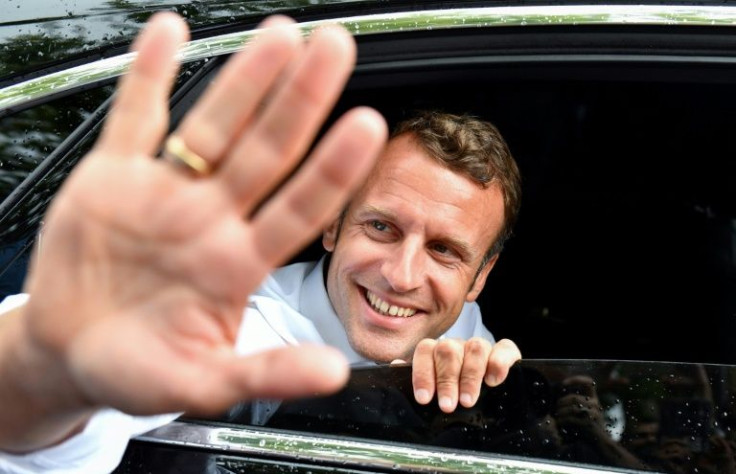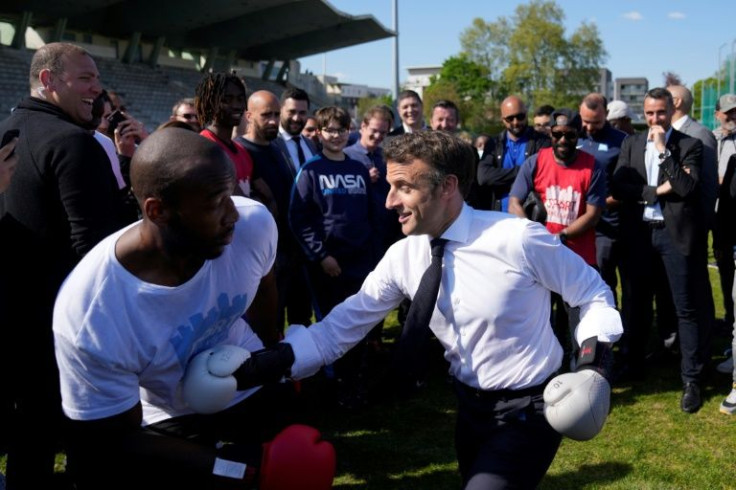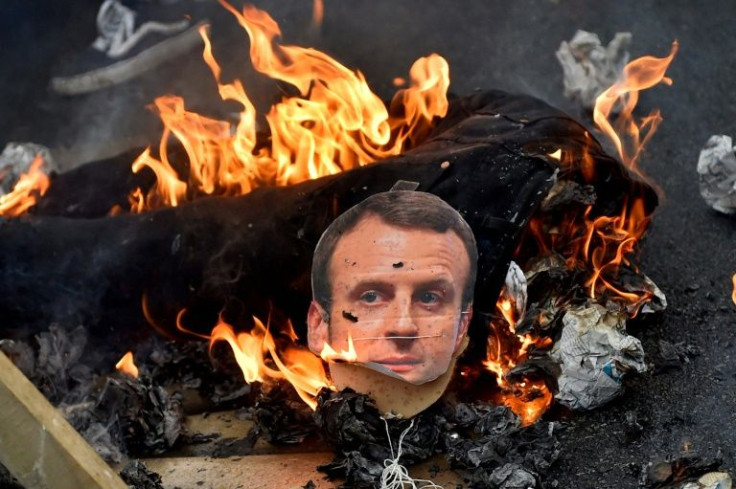Macron: Abrasive Reformer With Chance To Leave Mark On France
Young, pro-European and unfailingly ambitious, Emmanuel Macron is the first French president to serve a second term in 20 years, giving him a historic opportunity to leave his mark.
The 44-year-old, who came to power as France's youngest ever president, secured victory promising more pro-business and welfare reforms but with a "new method" that is expected to be less top-down.
He had billed Sunday's vote as a chance to "save the Republic" from the clutches of far-right rival Marine Le Pen, but will now face a challenge of uniting a highly fractured country.
Unveiling the essence of his programme for a second term in March, Macron offered a blunt message for a country famed for its lifestyle and long holidays, saying: "We have to work more."
His programme includes a controversial proposal to raise the retirement age to 65 for many people, which will face fierce resistance, as well as a pledge to oblige people on unemployment benefits to take up part-time work or training.

But during his stop-start campaigning for the presidency over the last two months, the centrist has also promised to be more green-minded by placing environmental concerns at the heart of his government and has reached out to left-wingers.
"I'm ready to invent something new to bring together our various beliefs and sensitivities to build a common front at the service of our nation for the years ahead," he said after his victory in the first round of the election on April 10.
Macron won admirers during his first term for his dynamic leadership and crisis management during the Covid-19 pandemic, but he has been dogged throughout by accusations that he is out-of-touch and "president of the rich."
These criticisms returned last week following a head-to-head debate with Le Pen when his scornful facial expressions and aggressive debating style surprised many observers.

Le Pen said he had been "nonchalant, condescending and showed an arrogance without limits".
His sometimes abrasive personality has been the cause of many of his political problems and was a major factor behind the so-called "Yellow Vest" protests against him in 2018-19, some of the most violent demonstrations in decades.
The former star student, who attended top French universities, has conceded making errors early in his first term with off-the-cuff comments to members of the public that have forged his reputation for high-handedness.
He once told an unemployed gardener that he could "cross the road and get you a job" and accused opponents of major labour market reforms in 2017 of being "slackers".
"I think that with some of my comments I hurt people," the former investment banker at Rothschild acknowledged during an interview with TF1 last year. "And I think you can get things done without hurting people."

Historian Jean Garrigues said that for some people Macron "crystallises a sort of class hatred that is very deeply rooted in French society.
"He appears to some as an almost archetypal example of the privileged and elite classes, the French of the rich," he told AFP.
Despite stirring such strong feelings in opponents, Macron has always retained a loyal core of support among wealthy urban professionals, and has increasingly drawn conservative and elderly voters.
They admire his pro-business policies and desire to modernise France's vast social security system, as well as what is widely seen as an uncommon intellect and grasp of policy detail.
Partly thanks to reforms to labour law in his first term, which made it easier to hire and fire people, unemployment is at its lowest level in 14 years.
"People are also proud when they see him overseas. He represents France well," said veteran journalist Nicolas Domenach, who co-authored the recent book "Macron: Why So Much Hatred?".
Macron believes in a "diplomacy of audacity" and he has thrown himself into the search for solutions to crises, ranging from Iran's disputed nuclear programme, to Libya's civil war, and latterly the Russian-Ukraine conflict.
His repeated mediation efforts have rarely borne fruit -- including his most recent attempts to convince Putin not to invade -- but the Ukraine crisis has proved a boon for his dream of a stronger, more united European Union.
Macron's unusual personal life remains a source of fascination in France, though his marriage is no longer a subject of open speculation, as it was before the 2017 election which forced him to make a public denial that he was gay.
He is married to his former drama teacher Brigitte, whom he met while a pupil at a private school in their hometown of Amiens in northeast France.
More than 24 years his senior and a mother of three children, Brigitte divorced her husband and began a relationship with Macron while he was in his late teens.
If he completes his second term, the voracious reader will be only 49 and is expected to pursue his dream of becoming a writer.
"I'm building up stories," he told Le Point magazine last week.
© Copyright AFP 2024. All rights reserved.





















